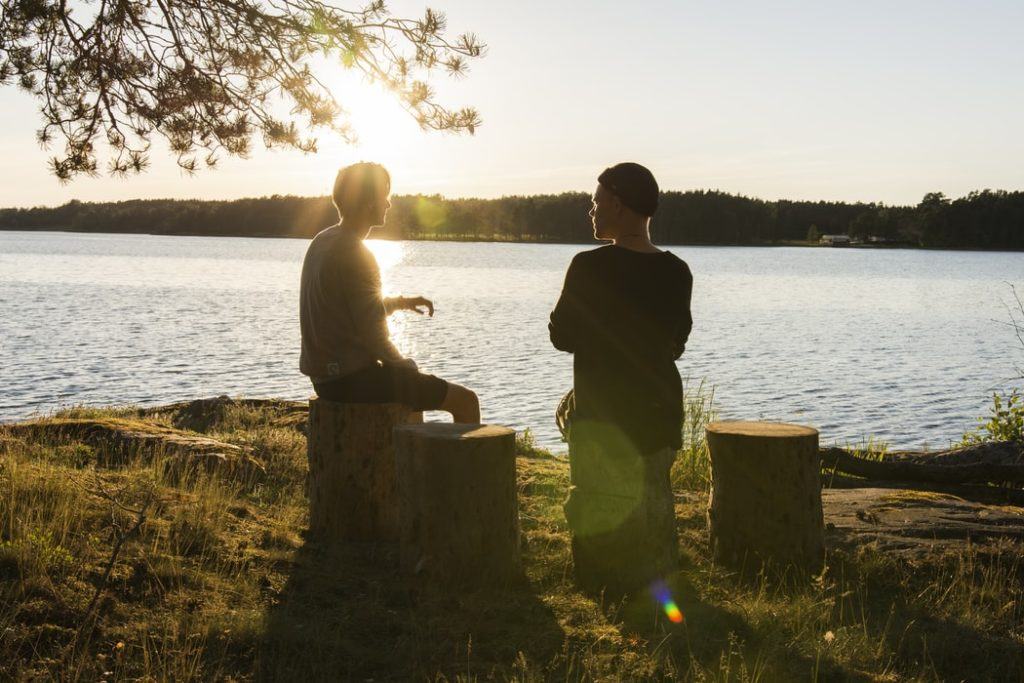Pandemic; most divisive election in recent history; on-line school; environmental crisis; social media; face coverings; protests; 24-hour news cycle; lock-down drills; SATs; economic downturn; wildfires; and if you aren’t freaking out yet don’t forget about spiders, snakes, and low flying birds. Weren’t the normal teenage stresses of dating, making the team, getting good grades, and being home before curfew enough? Today’s teens aren’t just stressed out, they are anxious and I am here today to discuss some of the best and most effective ways to manage anxiety in adolescence and in kids.
Children are anxious about the future; anxious about the world; anxious about how to make sense of so much internet and social media content. If you live with a teenager I don’t have to convince you of this fact but just in case you think having to walk uphill both ways in the snow to school everyday was more stressful than having to navigate the demands of creating and maintaining a digital identity, an IRL identity (that’s “In Real Life”), take five AP classes, volunteer at an eye catching non-profit, and keep up on all the latests mems, just ask the experts. In an article titled “How Big a Problem is Anxiety,” Robert L. Leahy Ph.D., Director of The American Institute for Cognitive Therapy NYC, states, “The average high school kid today has the same level of anxiety as the average psychiatric patient in the early 1950’s. We are getting more anxious every decade.” The statistics are alarming, according to the National Institutes of Health, nearly 1 in 3 of all adolescents ages 13 to 18 will experience an anxiety disorder. It’s no longer a secret anxiety in adolescence and in kids continues to rise; between 2007 and 2012, anxiety disorders in children and teens went up 20%.
Yes, but this is 2020!
Our kids are stressed, anxious, irritable, and afraid that it just keeps getting worse from here on out. So what can we do as parents? How can I respond when my 16 year old gets a super inappropriate “Snap” mocking his preference of music and theater over video games or when my 7 year old freaks out because she can’t find her “han-a-tizer” (hand sanitizer)? If you have been wondering how to help your kids with anxiety, I am here to tell you it is not an overnight fix but with a good support system it will be something you will learn to manage. We will be most effective if we can remember the word “C.A.L.M.” When my kids tell me something they are worried about or I find out something concerning or I can just tell something is off I want to approach my kiddos with “C.A.L.M.”.
C – Catch (the anxiety early)
A – Acknowledge (their experience)
L – Listen (to understand)
M – Maintain (their dignity)
C – Catch (the anxiety early)
It is important to note anxiety in adolescence and in kids shows itself in different ways, depending upon the person. Ultimately, I want to pay attention to signs that my kids are having a hard time. Some kids get loud and cranky, others get quiet and sit alone in their rooms, some over-function getting busier and busier while still others shut down avoiding even the most menial of tasks. The reality is that our kids are anxious, at least on some level, and as their parents we have the responsibility to check in on them. Anxiety in kids can be a scary thing because for many it is uncharted waters but I encourage you to ask them about their worries; no one needs so much privacy that they are unknown and alone in their fears. Make sure you are paying attention to changes and possible reasons for changes in your kids typical demeanor and activity level. It is important to remember that as parents we will either invest our energy on being proactive and preventative, constantly strengthening the foundations we have previously set or we will spend our energy on reacting, rigging and frantically rebuilding what has broken down or eroded away from lack of attention. Be available, in fact, availability is always your best-ability.
A – Acknowledge (their experience)
I have only ever experienced my life, the world, reality as a whole from one point-of-view, my own. I do not know what it is like to see the moon as you see it or to taste an apple as you taste it or to feel uncertainty as you feel it. I will only truly know those experiences as I know them. Now, we may express varying levels of agreement concerning our experiences; however, the fact remains that all of my experiences are all filtered through my particular way of thinking, feeling, and acting (not to mention my unique neurobiology and physiology). The same is true for you. The same is true for our kids. Therefore if I want to help calm my child’s anxiety I must first acknowledge their reality as real for them. The key here is validation. The support I will be able to provide my child or teenager is directly proportionate to my willingness and ability to acknowledge their experience as real and understandable for them given their current life experience and level of skill for dealing with whatever life dishes out. As a parent, I validate when I am able to slow down, take a step back and imagine what it might be like to be 13 years old again and dealing with this situation. To acknowledge that this break-up, this C- test grade, this lacrosse game, this Instagram post really is a big deal.
Perception is reality.
Now, does it really compare to the presentation I have coming up next week, or the difficulties of making ends meet in a COVID economy, or the complication of figuring out how to manage a blended family? No, no it probably doesn’t. That, however, is not the point. Whatever our kids are dealing with is the benchmark of stress for them. In the long run, we save everyone a lot of unnecessary pain when we are able to look at things from a different perspective and recognize that our kid’s issues are not trivial. Anxiety in adolescence and in kids is real and so are their thoughts and fears. They are the necessary growing pains of becoming a person. In practice, validation often sounds like “that makes senses, I think I can see why you’re thinking that,” or “can you help me understand that a bit better, I can tell that really bothered you,” or even “I don’t really get it but I want to ‘cause if it’s important to you then it’s important to me.”
Acknowledgment and validation do not mean we like, want, agree with, or approve of what we are hearing but it does mean that we do the work to tolerate our own discomfort long enough to understand where our kids are coming from. We give our kids an amazing gift when we provide them the space they need to be exactly where they are, to think exactly what they think, and to feel exactly how they feel. Learning how to deal with stress and anxiety and understanding the signs will allow your children to thrive in ways they never knew before.
Read more about the CALM method as we cover L and M in this blog.
In the meantime, do you think your child would benefit from holistic therapy? Contact us to learn more.
If you’ve been searching, “therapists in NJ for anxiety,” you’re in the right place. Awakened Path Counseling proudly provides quality transpersonal and traditional psychotherapy, at their offices in Middlesex County, New Jersey, and online. Their experienced therapists specialize in in-person and online therapy for teens. The experienced clinicians at Awakened Path Counseling are passionate about their holistic approach to mental health, addressing your emotional, cognitive, physical, and spiritual needs. Awakened Path’s team of therapists in New Jersey for anxiety and stress are experienced in supporting adults, teens, and families as they find balance and healing.


